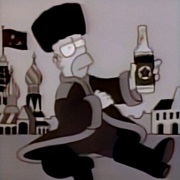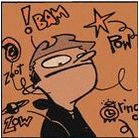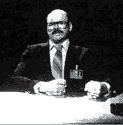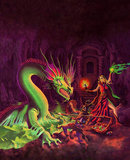|
Yes, I felt very uplifted after reading A People's Tragedy. Really, an underrated feel-good work. Who were his rivals, exactly?
|
|
|
|

|
| # ? May 31, 2024 20:54 |
|
Minenfeld! posted:Yes, I felt very uplifted after reading A People's Tragedy. Really, an underrated feel-good work. I think the fake reviews were for his book Natasha’s Dance.
|
|
|
|
EoinCannon posted:Thank you for the Figes recommendation, thread. I'm enjoying it so far Sadly I don’t believe there are any good books on Russias various wars in the Balkans in the 19th century
|
|
|
|
sbaldrick posted:Sadly I don’t believe there are any good books on Russias various wars in the Balkans in the 19th century There's Barbara Jelavich's Russia's Balkan Entanglements, 1806-1914, which I read once a long time ago and don't remember much about. It's from 1991 but I'm not sure it's been surpassed since then.
|
|
|
|
Minenfeld! posted:Yes, I felt very uplifted after reading A People's Tragedy. Really, an underrated feel-good work. Robert Service was one of the targets.
|
|
|
|
I find investigate journalism really fascinating, not only in the results but in the process. I love reading about reporters digging into things and the how-to of uncovering evidence and finding sources. What are some good books that not only tell a great story but also show you how that story was discovered?
|
|
|
|
blue squares posted:I find investigate journalism really fascinating, not only in the results but in the process. I love reading about reporters digging into things and the how-to of uncovering evidence and finding sources. All the President's Men is a classic here.
|
|
|
|
Any reason not to read "The lessons of history"? I asked my history PHD buddy but he hasn't gotten back to me. No real specific thing I'm looking for, I just am curious about people's opinions. I generally like to read specific books and I thought it would be fun to pull back a bit.
|
|
|
|
Just read 'nothing to envy', oral history from north korean defectors which goes up until about 2008. is there a good book on what has been going on there in the past decade?
|
|
|
|
This isn't that, but I'll take the opportunity to say that I read A Kim Jong-Il Production a few years ago thinking it would be an interesting look at either the Kim regime or the North Korean film industry, and it was really disappointingly light, and came across like a very clear attempt to promote Shin Sang-ok, up to trying to depict the 3 Ninjas sequel he directed as some kind of cinematic masterpiece.
|
|
|
|
The sad fact is it’s become progressively harder to escape from or defect away from NK. There are a bunch of reasons for this but lately what really hurts is China as part of their Covid Zero policy especially has their border almost as locked up as tight as the DMZ.
|
|
|
|
roomtone posted:Just read 'nothing to envy', oral history from north korean defectors which goes up until about 2008. A few years ago I was going though my library system reading every book I could on North Korea, but looking back I seem to have lost interest a few years after the death of Kim Jong-il. That said here are a few recent books that I might have missed or read and then forgot that deal with NK history; North Korea undercover : inside the world's most secret state By John Sweeney came out in 2015 See you again in Pyongyang : a journey into Kim Jong Un's North Korea by Travis Jeppesen was published in 2018. North Korea confidential : private markets, fashion trends, prison camps, dissenters and defectors by Daniel Tudor, also 2018 The great successor : the divinely perfect destiny of brilliant Comrade Kim Jong Un by Anna Fifield came out in 2019 I hope that's helpful. Chairman Capone posted:This isn't that, but I'll take the opportunity to say that I read A Kim Jong-Il Production a few years ago thinking it would be an interesting look at either the Kim regime or the North Korean film industry, and it was really disappointingly light, and came across like a very clear attempt to promote Shin Sang-ok, up to trying to depict the 3 Ninjas sequel he directed as some kind of cinematic masterpiece. I actually liked A Kim Jong-Il Production, although as you mentioned it's more of a non-fiction thriller than an in-depth history book. That said while going through my library systems catalog I did spot Aim high in creation! : a one-of-a-kind journey inside North Korea's propaganda machine by Anna Broinowski, which might be more what your looking for (although i haven't read it yet).
|
|
|
|
Does anyone have a recommendation for something not too academic about Napoleon I's return to power, the 100 days and Waterloo?
|
|
|
|
blue squares posted:I find investigate journalism really fascinating, not only in the results but in the process. I love reading about reporters digging into things and the how-to of uncovering evidence and finding sources. John Carreyrou’s Bad Blood is pretty good on this (his investigation into Theranos); it’s a little different but Jorge Contreras’s Genome Defense is about the SCOTUS challenge to gene patents. Contreras is a law professor and had solid access to many of the people involved, and much of the book focuses on how the people involved developed the approach they were going to use in their challenge.
|
|
|
|
Kalman posted:John Carreyrou’s Bad Blood is pretty good on this (his investigation into Theranos); it’s a little different but Jorge Contreras’s Genome Defense is about the SCOTUS challenge to gene patents. Contreras is a law professor and had solid access to many of the people involved, and much of the book focuses on how the people involved developed the approach they were going to use in their challenge. Thanks! I’ve read Bad Blood but I’ll look into Genome Defense
|
|
|
|
I'm looking at The Nazi Seizure of Power: The Experience of a Single German Town 1930-1935, and I wonder if there are any other books that study a geographically widespread event through the case study of a single town. I have a copy of Magnetic Mountain by Stephen Kotkin.
|
|
|
|
Earlier this week I consumed Ben Macintyre's A Spy Among Friends: Kim Philby and the Great Betrayal in audiobook form and it was intense. I knew the name Kim Philby before but that was all. Early on in the telling Macintyre quotes a CS Lewis lecture delivered in the early 1940s in which Lewis says, paraphrased, "every English man's life from birth to death is consumed by trying to get into more and more exclusive clubs - primary schools, secondary schools, industry, society clubs, etc." I thought that was a fascinating insight, and Macintyre goes on to show that Philby was able to turn over information to the Soviets for decades despite a) mounting evidence of a high placed mole and b) more than once slipping and trying to recruit someone whose loyalty to England was stronger than his, simply because no one thought that someone of such good breeding/stature as Philby could be a double agent.
|
|
|
|
FPyat posted:I'm looking at The Nazi Seizure of Power: The Experience of a Single German Town 1930-1935, and I wonder if there are any other books that study a geographically widespread event through the case study of a single town. I have a copy of Magnetic Mountain by Stephen Kotkin. On a somewhat similar topic, Edith Sheffer's book "Burned Bridge: How East and West Germans Made the Iron Curtain" which is about a city in Germany which gets bisected by the East/West German internal border and uses it to explore wider Cold War German divisions.
|
|
|
|
Breezing through "The Devil's Chessboard: Allen Dulles, the CIA, and the Rise of America's Secret Government" by David Talbot and it's just remarkable how much damage this one man did not just to the United States and all the positives things FDR did, but to the entire world, through the CIA. His own wife details her fantasy of murdering him, imagining herself as a rooster with knives on her talons "cutting him to ribbons," and just how much she hates him. These are the men who are drawn to the darkest natures of power, and usually the most effective at it; despised by their own wife & children, yet controlling the strings of domestic/geopolitics with our societal fate in their hand. I was watching Adam Curtis' new series Can't Get You Out of My Head, and even in places where the CIA had no influence like in China, Mao/his wife/and others labeled political rivals as agents of the CIA to destroy them. The paranoia from within men like Dulles projected onto the world carries on to this day. The battle of "capitalism good vs communist evil" and the decades of indoctrination rage on. Dulles would betray anyone if it meant more control or power; like Talbot brings up again and again, it is astonishing how little Dulles did to alert FDR to the ongoing Holocaust/assist friends asking him for help to get them out of Europe. He spent more time rescuing ex-Nazis than he did helping longtime Jewish family friends from being murdered. Growing up seeing stories about Nazis escaping to fascist friendly South American countries, I would think "how does that happen" or who assisted them in escaping justice, and after reading this book I have my answer in Allen Dulles. knox fucked around with this message at 17:25 on Apr 24, 2022 |
|
|
|

|
|
|
|
Your emoji argument is supposed to mean what exactly?
|
|
|
|
knox posted:Your emoji argument is supposed to mean what exactly? That Talbots assertions are bunk, thus rendering the entire work suspect and in my opinion a waste of time to read
|
|
|
|
If he was actually an accredited historian, which he is in fact not, he would be referred to in the field as a hack.
|
|
|
|
blue squares posted:That Talbots assertions are bunk, thus rendering the entire work suspect and in my opinion a waste of time to read I'd love to hear your counter "non-bunk" assertions on the topics, in comparison to the detailed novel about the CIA's longest serving and most influential director. What do you suggest I read on this topic to better educate myself?
|
|
|
|
knox posted:I'd love to hear your counter "non-bunk" assertions on the topics, in comparison to the detailed novel about the CIA's longest serving and most influential director. Well to be honest it doesn’t feel as if you’re asking in good faith.
|
|
|
|
knox posted:I'd love to hear your counter "non-bunk" assertions on the topics, in comparison to the detailed novel about the CIA's longest serving and most influential director. The use of the word "novel" there is an interesting Freudian slip.
|
|
|
|
knox posted:What do you suggest I read on this topic to better educate myself? I haven't read it, but I've heard good things about Stephen Kinzer's "The Brothers", a dual biography of both Allen and John Foster Dulles.
|
|
|
|
 I'm willing to play nice for a pop history entertaining dubious ideas, and when you're dealing with a topic where there are known real conspiracies I understand giving some breath to the false ones, but that one is A Lot, all right
|
|
|
|
In a way, I guess I get the idea that there's a JFK conspiracy theory, but I've never heard of an RFK conspiracy theory before. Sirhan killed Kennedy in front of a group of hotel staff and campaign staffers, and he was pretty vocal that he did it because he was a Palestinian who was mad that RFK supported Israel in the Six Day War and had pledged on the campaign trail to send planes to Israel.
|
|
|
|
https://en.wikipedia.org/wiki/Robert_F._Kennedy_assassination_conspiracy_theories
|
|
|
|
See, that's what gets me. A bunch of people saw the guy shoot him. They then tackled him just after he shot him. They found a diary saying "I''m going him because he's pro-Israel". He gave an interview where he said the same thing. Yet, the response by some people is "I guess we'll never know who shot RFK and why."
|
|
|
|
Epicurius posted:See, that's what gets me. A bunch of people saw the guy shoot him. They then tackled him just after he shot him. They found a diary saying "I''m going him because he's pro-Israel". He gave an interview where he said the same thing. Yet, the response by some people is "I guess we'll never know who shot RFK and why." They saw Sirhan Sirhan with a gun in his hand and heard gunshots; it was a cramped kitchen filled with over 70 people that RFK was directed into by recently hired part-time security man Thane Eugene Cesar who also worked for Lockheed Martin; coroner who viewed the body said he was shot from behind with contact wounds. Sirhan Sirhan is also the original Manchurian Candidate, according to LAPD detectives who interviewed him & the San Quentin prison psychologist who worked with him. neongrey posted:
I'm very confused; yes there are "known real conspiracies" about JFK's assassination, the largest that exist in our society, and Allen Dulles being fired by JFK as head of the CIA (an organization that assassinated leftwing leaders with impunity across the world and installed US-friendly fascists in their place) is at the center of one. I don't understand why it is dubious/a stretch/bullshit/however you want to describe it, to think that Allen Dulles turned his Castro assassination-apparatus of the CIA onto the president who at that moment ended his 4+ decade long spy career & fired him, and then somehow he is put in charge of the investigation of that assassination to conveniently place the blame on deceased lone gunman Oswald who was proven to be CIA asset. Am I missing something? Even if you believe the exact same story of "fanatical low-IQ lone gunman" theory for both assassins, Talbot is not breaking some new conspiracy here; this has been discussed since the 60s. I mentioned nothing of JFK's assassination (or RFK who is only very briefly discussed in the last chapter) when talking about the book, as I haven't gotten past half way point to read it. But everything that I have read up to this point, on Dulles' early career/Nixon & Dulles brothers early union/Nazi ratlines/Cold War machinations immediately after WWII ended, matches historical fact and any other retelling from any "accredited historian" publication, so I'm not understanding why the book shouldn't be read. Epicurius posted:I haven't read it, but I've heard good things about Stephen Kinzer's "The Brothers", a dual biography of both Allen and John Foster Dulles. Thanks m8.
|
|
|
|
knox posted:Allen Dulles being fired by JFK as head of the CIA (an organization that assassinated leftwing leaders with impunity across the world and installed US-friendly fascists in their place) is at the center of one. I don't understand why it is dubious/a stretch/bullshit/however you want to describe it, to think that Allen Dulles turned his Castro assassination-apparatus of the CIA onto the president who at that moment ended his 4+ decade long spy career & fired him, and then somehow he is put in charge of the investigation of that assassination to conveniently place the blame on deceased lone gunman Oswald who was proven to be CIA asset. Well, for one thing, it’d require believing that for 60 years, the CIA has managed to keep secret literal treason. (Which is dubious/a stretch/bullshit because, y’know, the CIA has shown itself to be so extremely good at keeping secrets over those 60 years.)
|
|
|
|
I honestly think the fact Trump hasn't said it at a rally to make himself sound cool is the best evidence the government had nothing to do with JFK's assassination/have aliens/whatever.
|
|
|
|
I'm interested in how perceptions of Roman history have changed through time. Who did people post 476 see as the heroes, and who as the villains? Were Marius and the Gracchi demonized? Was the transition to Empire seen as good or bad? Did monarchists think Rome proved the deficiencies of republican government and the need for hereditary succession? First Principles by Thomas Ricks covers what the American founders thought, so I guess I'm looking for information on older European views.
FPyat fucked around with this message at 05:14 on Apr 25, 2022 |
|
|
|
Fate Accomplice posted:Earlier this week I consumed Ben Macintyre's A Spy Among Friends: Kim Philby and the Great Betrayal in audiobook form and it was intense. I knew the name Kim Philby before but that was all.
|
|
|
|
FPyat posted:I'm interested in how perceptions of Roman history have changed through time. Who did people post 476 see as the heroes, and who as the villains? Were Marius and the Gracchi demonized? Was the transition to Empire seen as good or bad? Did monarchists think Rome proved the deficiencies of republican government and the need for hereditary succession? First Principles by Thomas Ricks covers what the American founders thought, so I guess I'm looking for information on older European views. I wrote a paper my first semester of grad school on the reception of Roman political tradition in the Renaissance... I shudder to go back to look at it now but two books I used were J. G. A. Pocock's "The Machiavellian Moment: Florentine Political Thought and the Atlantic Republican Tradition" and Mikael Hörnqvist's "Machiavelli and Empire." From what I recall, it was that broadly the Renaissance was when the Roman Republic started to be revived and given primacy over the legacy of the Roman Empire, but also specific Italian city-states hearkened back to specific eras of the Republic. I think Florence viewed itself as the successor to those who had opposed Sulla, while Milan embraced Sulla?
|
|
|
|
Any recommendations on current books on ancient Sumer? I've been reading The Sumerians -Their History, Culture, and Character by Samuel Kramer and while very interesting, it is from the 70's so I'm left wondering if there have been developments on sumerology after that.
|
|
|
|
Kalman posted:(Which is dubious/a stretch/bullshit because, y’know, the CIA has shown itself to be so extremely good at keeping secrets over those 60 years.) This is the most tiresome argument. We know almost nothing about Operation Gladio, and most of what little did come out was because of an unrelated investigation into a bank in the 90s. Hell, we call the whole thing "Operation Gladio" even though we know there were different names for the operation in each country because Gladio is the only name we do know.
|
|
|
|

|
| # ? May 31, 2024 20:54 |
|
Gripweed posted:This is the most tiresome argument. We know almost nothing about Operation Gladio, and most of what little did come out was because of an unrelated investigation into a bank in the 90s. Hell, we call the whole thing "Operation Gladio" even though we know there were different names for the operation in each country because Gladio is the only name we do know. The problem with the alternative, though, is that it can also very easily slip into the situation where the CIA becomes sort of the default bad guy in conspiracy theories....elite masterminds, pulling the strings of everything. Any bad thing in the world gets blamed on the CIA.
|
|
|






























